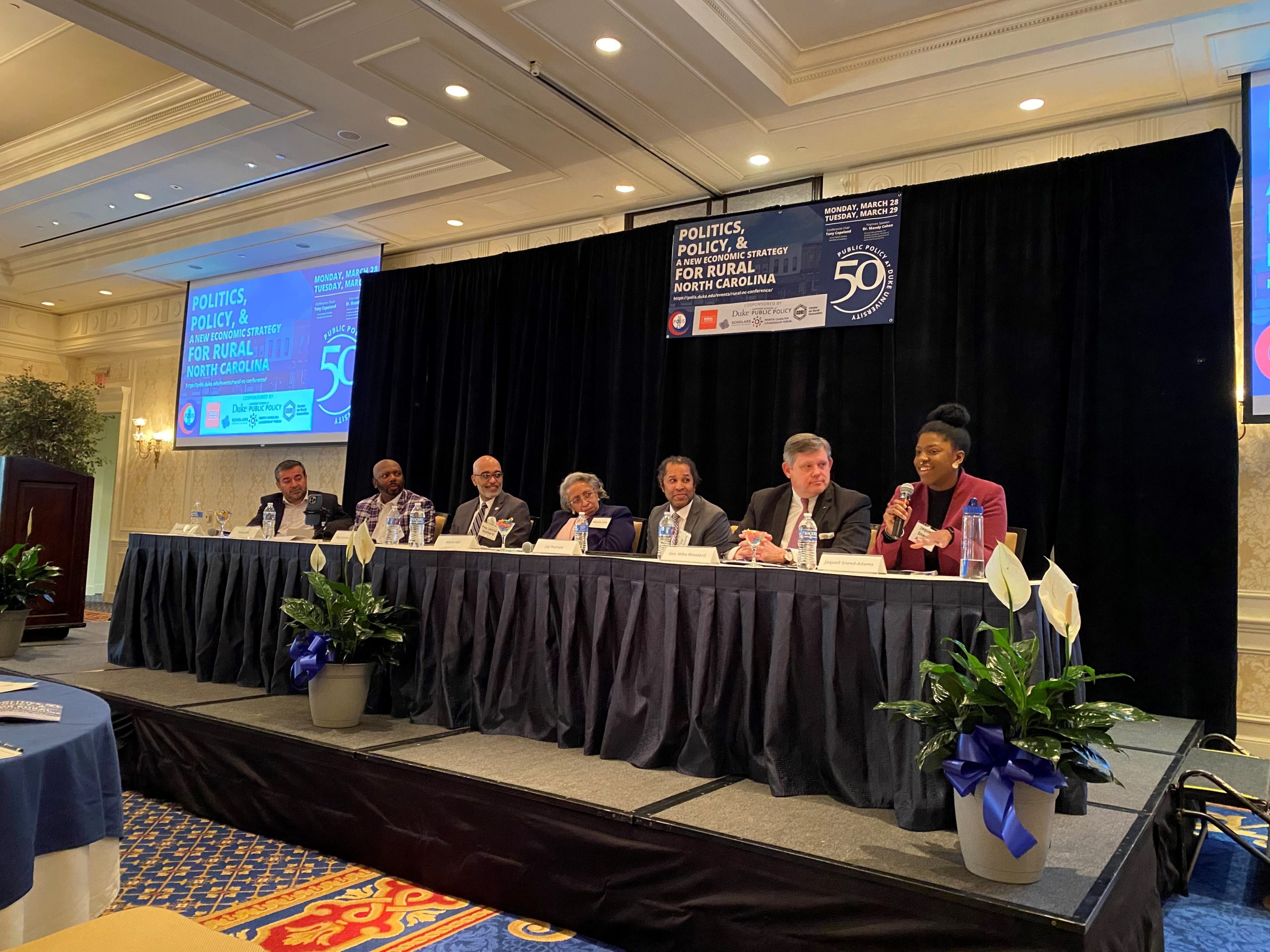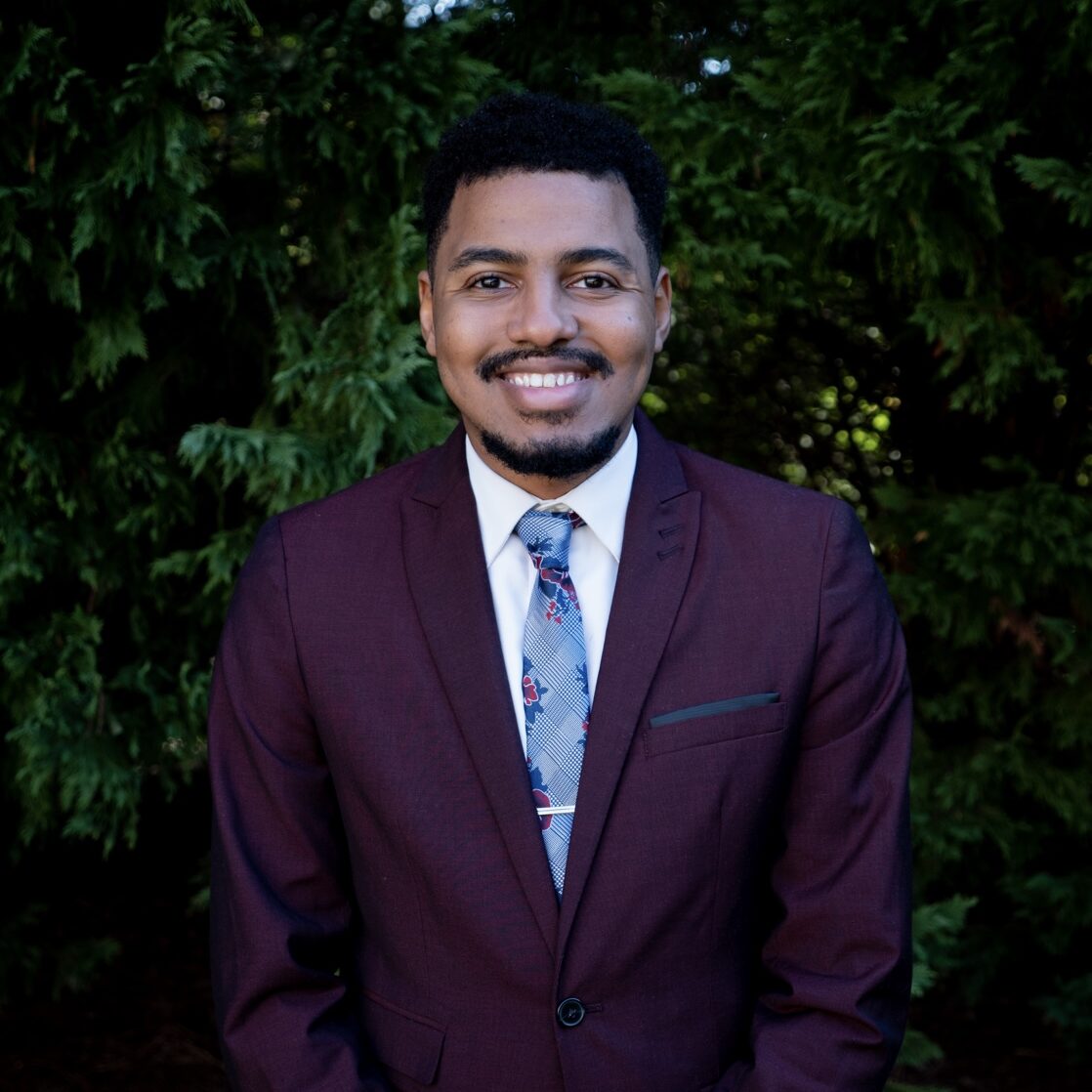
Rural Conference Recap:
The Politics Of Rural Identity
Antonio Butler (MPP ‘23)
Apr 20, 2022
Rural Communities and the Politics of Identity featured Pastor Danny Ellis, North Carolina Representative James Gailliard, Executive Director of Tyrrell County CDC Mavis Hill, Duke Professor Jay Pearson, Duke Master of Public Policy Candidate Jaquell Sneed-Adams, and North Carolina Senator Mike Woodard on diversity and political identity in rural communities.
In this panel each panelist paid close attention to the experiences of diverse populations that call rural communities’ home, while considering the social and political constructs that shape these communities.
During their respective presentations Pastor Ellis and Professor Pearson discussed the stark health experiences and subsequent negative views people from diverse backgrounds have about the healthcare system. Pastor Ellis discussed the great deal of distrust minorities have in our healthcare system and the systems lack of cultural competency. Professor Pearson expanded on these racial disparities minority people face in rural America in his presentation. He highlighted where previous studies have gone awry in looking at health disparities and provided solutions to this issue moving forward. These solutions included having a more detailed fundamental social assessment of health disparities in America and realizing one size intervention models will not work. Researchers and policy makers should then focus on tailoring studies and policy toward group specific investigations that include socio-cultural, socio-environmental, and physical environmental factors when looking at health outcomes in rural America. Most important of all, policy makers and researchers should talk directly to rural residences about what they need.
During his presentation Representative Gailliard focused on social constructs and their relation to political identity. His presentation had four main themes: location, political ideology, and dysfunction. He noted the importance of recognizing that western rural NC is not the same as eastern rural NC. He argues that NC rural communities are not monolithic. He also asserts that most rural residents are not far left and often feel detached from the national left agenda. Dysfunction comes from a lack a vision in rural communities. Rep. Gailliard left the audience with a number of solutions to these issues. These included alleviating the systemic issues within rural communities, the creation of a bipartisan, bicameral rural caucus, and fixing the disproportion of philanthropic dollars towards urban communities.
Mavis Hill also highlighted challenges in rural eastern North Carolina including persistent poverty and racial issues. Hill’s strategies to alleviate these issues include creating a holistic approach that builds on eastern NC’s strengths and addressing job creation and building natural disaster recovery skills. Hill concluded that eastern North Carolina is strong, resilient, and should not continue to be overlooked.
Rounding out the conversation Senator Mike Woodard and MPP student Jaquell Sneed-Adams focused on the importance of storytelling. Senator Woodard discussed the need for government officials to go and directly be with the people to hear their needs and stories, and not come to them believing that as a government official they already know a solution to their problems. He also highlighted the pride in rural communities, and how rural communities must pay attention to homegrown talent, and not necessarily on being the next community to get the next big company to move to their location. Jaquell Sneed-Adams also highlighted the importance of empowering young people from rural communities and the need for investment in rural young people. Coming from Hendersonville, Sneed-Adams discussed the stereotypes young rural people face and often internalize, and the challenges of growing up where opportunities may not be as prevalent in more urban communities. Sneed-Adams left the crowd pondering two questions: how can we ensure young people get the necessary resources and opportunities they need to stay in their rural communities, and how can we instill pride in our young people from rural communities.
Overall, the panelist did an excellent job distilling the unique challenges diverse rural populations face, while also highlighting solutions to these issues.


